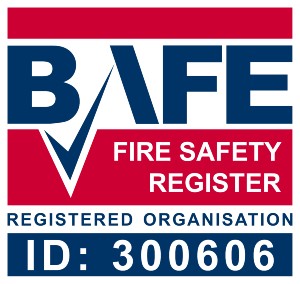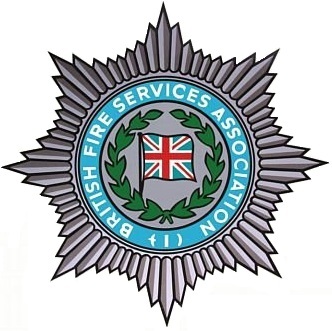Be Wary of Winter Fires
As the dark nights close in and the temperature drops, it’s likely that the onset of winter will bring excitement for the upcoming festive period.
However, it’s also important to remember that the chances of fire are heightened and, according to NHS statistics, fires in the home are one of the most serious hazards associated with Christmas. In fact, you are up to 50% more likely to die in a house fire over Christmas than at any other time of the year.
The National Fire Protection Association (NFPA) suggest the prevalence of fires over winter are due to four main factors: Christmas decorations, the use of candles, heating equipment and cooking. So to keep your home, and everyone within it, as safe as possible from the threat of fire this winter, follow our guide to fire safety this season…
Christmas Decorations
Putting up your Christmas decorations should be a time of fun and celebration. However, when things go wrong, and fires occur, the outcome can be devastating. These simple tips should reduce your risk of fire and allow you to enjoy your festive decorations:
- When putting up your tree make sure it is at least three feet away from any heat source (eg. fireplaces, candles, heaters, radiators).
- Make sure your tree is not blocking an exit way.
- Only use fairy lights from a reputable supplier and make sure you follow the instructions carefully.
- Replace any faulty or damaged lights.
- Always turn your fairy lights off before going to bed.
- Keep flammable Christmas decorations (eg. ones made of paper, cardboard or fabric) as far away as possible from heat sources.
- Check any electrical decorations are in safe working order, replacing any that have frayed cords or cables, loose connections or broken plugs.
Candles
Candle fire safety may sound pretty simple. However, candle fires are a huge cause of fires in the home, particularly over winter. RoSPA (The Royal Society for the Prevention of Accidents) statistics claim that in 2008, for example, there were nearly 1400 candles fires in homes across the UK, killing 18 people and injuring more than 500 others. The top three days for home candle fires, according to the NFPA, are Christmas Eve, Christmas Day and New Year’s Eve. So if you’re thinking of lighting a candle this winter, make sure you:
- Keep all lit candles as far away as possible from flammable materials (eg. curtains, cushions, paper decorations, Christmas cards and furniture).
- Make sure candles (and any matches or lighters) are kept out of reach of children.
- Never leave lit candles unattended.
- Make sure you blow all candles out before going to bed or leaving the house.
Fire Safety Equipment
In addition to this advice, one of the best ways to protect your home from the threat of fire this winter – and throughout the rest of the year – is to install and regularly check and maintain your fire safety equipment. This means fitting and testing your fire alarms, making sure they are in full working order and replacing the batteries regularly. Multi-purpose fire extinguishers are highly recommended and fire blankets are also a great way to protect your home, particularly in the kitchen.
Heating
The increased need for the heating over the winter is a major contributor to the rise in fires in the home. Government statistics show that around 100 fires a year are caused by faulty electric blankets and nearly 7600 homes in England will experience a chimney fire every year. In addition, new figures released by the London Fire Brigade show that fires caused by electric heaters have resulted in 11 deaths and nearly 80 injuries over the past five winters.
So to keep your home warm – but safe – this Christmas, follow the recommended Government advice:
- If you have an open fire, make sure you always use a fireguard to protect against scattering hot embers and prevent children or pets from getting near it.
- Make sure embers are always completely put out before you go to bed.
- Keep your chimney and flue system clean and regularly maintained.
- If you use electric, portable heaters, keep them well away from flammable materials (curtains, furniture etc) and never place drying clothes or towels on top of them.
- Always turn them off and unplug them before going out or going to bed.
- If you use an electric blanket, never use a hot water bottle in the same bed – even if the blanket is switched off.
- Make sure you unplug your blanket before you go to sleep, unless they feature a safe all-night use thermostat control.
- When storing your blanket, make sure it is rolled up or loosely folded to prevent internal wire damage.
- Check your blanket regularly for wear and tear and completely replace it every 10 years.
- Test your blanket once every 3 years – Age UK or your local fire and rescue service may be able to do this for you.
- Try not to buy second-hand blankets.
Cooking
According to the NFPA, cooking is the leading cause of home fires and related injuries over winter. Not only are people eating more hot food to keep themselves warm, but they are also juggling entertaining family and friends with cooking impressive Christmas meals. So to reduce your risk of fire in the kitchen this winter, make sure you:
- Never cook whilst under the influence of alcohol.
- Keep children as far away from the oven and hob as possible.
- Never leave cooking unattended.
- Make sure the oven and hob is completely switched off before you leave the house or go to bed.










